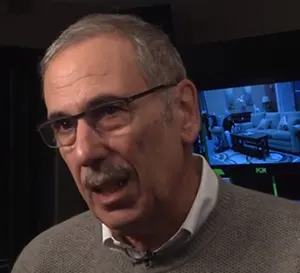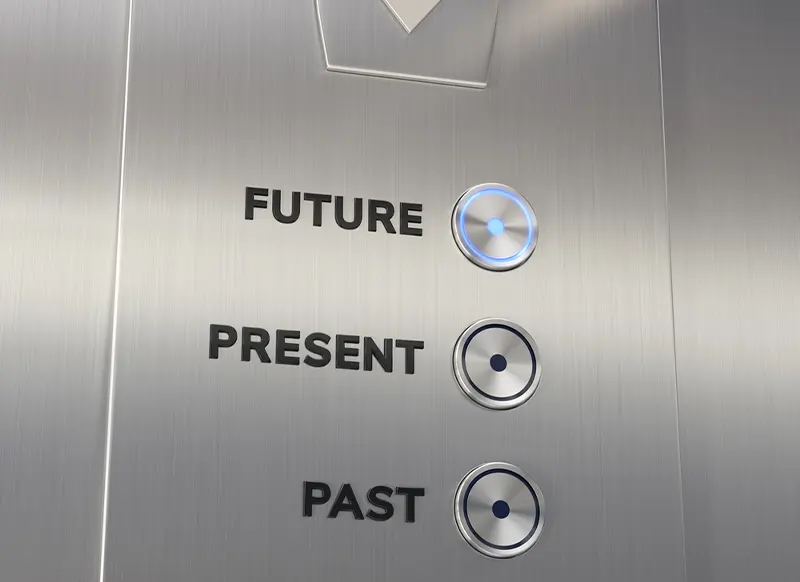Published on: April 2, 2025
By Daniel Butcher
Given the reputational minefields of social media, it’s important for professionals to think carefully about their strategies for online connections.
Academy of Management Scholar Nancy Rothbard of the University of Pennsylvania said there are essentially four strategies that she and her colleagues identified in their research on this topic.
1. Being open, which is the letting-it-all-hang-out strategy. This yields higher rates of engagement, although TMI (too much information) may be a hazard if you’re not careful.
“The benefit of the open strategy is that it’s easy, and that you’re very authentic, and so that authenticity really comes through to your connections,” Rothbard said. “The risk is that you reveal something that is problematic in the eyes of one of the multiple audience members.
“This is really challenging, because there isn’t only one audience segment that you’re talking to when you’re on social media,” she said. “It’s a broad-based, non-tailored set of platforms.
“The default is to disclose the same information to a broad set of people, and so, if you’re open, whatever you’re saying is going to go to everybody, and some parts of your audience may love it, and some parts may hate it.”
2. Audience strategy, which refers to carefully curating who is in your audience, often deciding to have personal or professional connections (but not both). This includes making careful decisions about who to connect with and which requested followers to accept.
“This strategy means that you’re very open with all of your disclosures, but you’ve carefully vetted who sees it, and you’ve got a limited audience that you’ll reveal your thoughts and feelings to,” Rothbard said.
“The problem with that is that you don’t always control who your audience members will disclose your posts to, so your audience members could repost or like something that you’ve shared and that other people who are not in your audience could see, so there’s some risk there,” she said.
3. Content strategy, which is aiming for a big-tent audience of both personal and professional connections, but carefully curating content to disclose.
“You might be disclosing personal content online, but you’re disclosing a really carefully vetted set of curated content that is designed not to offend and to be disclosed to a broad set of audiences,” Rothbard said.
“It’s the one that I use personally, because you never know who’s going to see your online disclosures, but the risk there is that people could think of you as being too curated and not authentic,” she said.
4. Hybrid strategy, also referred to as custom strategy, is taking a customized approach of disclosing different information to different audiences.
“That strategy would be ideal, but it takes a ton of skill and time to do it well, so if you don’t have the skill and you don’t have the time, then it could backfire on you,” Rothbard said.
-
Daniel Butcher is a writer and the Managing Editor of AOM Today at the Academy of Management (AOM). Previously, he was a writer and the Finance Editor for Strategic Finance magazine and Management Accounting Quarterly, a scholarly journal, at the Institute of Management Accountants (IMA). Prior to that, he worked as a writer/editor at The Financial Times, including daily FT sister publications Ignites and FundFire, as well as Crain Communications’s InvestmentNews and Crain’s Wealth, eFinancialCareers, and Arizent’s Financial Planning, Re:Invent|Wealth, On Wall Street, Bank Investment Consultant, and Money Management Executive. He earned his bachelor’s degree from the University of Colorado Boulder and his master’s degree from New York University. You can reach him at dbutcher@aom.org or via LinkedIn.
View all posts
Up next....
Everyone Will Suffer in the Wake of Trump Administration’s Research Cuts
Source: Shutterstock
By Paul Friedman
This year, the Trump administration has fired many government researchers, canceled scientific and medical research grants, and targeted leading universities, including Harvard, with debilitating funding freezes. Fear of reprisal has caused many scientists, doctors, professors, and university administrators to opt for silence instead of speaking up to defend the research that is getting the ax.
Academy of Management (AOM) Scholar Peter Bamberger of Tel Aviv University says much of the research produced by him and his colleagues, including many AOM members, has a day-to-day impact on industry practitioners, including organizational leaders and managers. Cuts in federal funding for research will have a negative impact on industry, as well as researchers, colleges and universities, and other research institutions.
“What we publish in our primary journals have to be both theoretically important and have practical relevance,” Bamberger said. “It’s got to be interesting from a theoretical perspective and intellectual perspective, and it’s got to have some sort of surprising element—going against conventional wisdom—but it also has to translate that surprising finding into something that managers can do something about.
“And there are thousands of organizational consultants who read the findings published in our journals and then translate that into actual practice in organizations,” he said.
Bamberger points out that a great deal of research is specifically aimed at examining current practices by managers and their efficacy. Recently, he published a study of the managerial approach called design thinking, which focuses on understanding clients’ needs and designing innovative solutions.
“Design thinking has been around for about 10 years,” Bamberger said. “It’s an approach to create more innovative ways of boosting learning and finding innovative solutions to common problems or sometimes even really wicked problems.
“It became a fad and a lot of organizations adopted it, but no one ever bothered to actually assess whether or not it has an impact and whether this impact is any greater than other types of learning-oriented interventions, like team building,” he said.
Bamberger and research colleagues designed a field experiment to test the impact of design thinking as a team learning intervention. They compared over time what happens in terms of the efficiency and productivity of teams using different interventions.
“Is design thinking more efficacious than an alternative?” Bamberger said. “And we found out that in fact it is, and we actually demonstrate the mechanism by which it operates and why it’s more effective than other mechanisms.
“So these types of practical implications are useful to managers and to the extent that we don’t have funding necessary to do this type of research, everybody suffers,” he said.
-
Paul Friedman is a journalist who worked for 45 years at the three major news networks. He began as a writer and reporter and then became a producer of major news broadcasts, including Nightly News and the Today show at NBC, and World News Tonight with Peter Jennings at ABC. He also served as Executive VicePresident of News at ABC and CBS. Later, he taught journalism as a professor at Columbia University, New York University, and Quinnipiac University. Friedman is now semi-retired and lives with his wife in Florida.
View all posts
Up next....
Trump Administration Policies Have Chilling Effects on Academia
Harvard Yard in the winter. Source: Shutterstock
By Paul Friedman
Tighter enforcement of immigration regulations and cuts in research grants under the Trump administration are having negative impacts on academic work in general and on not-for-profit professional associations, including the Academy of Management, in particular.
Academy of Management (AOM) Scholar Peter Bamberger of Tel Aviv University, the president of AOM, says you can see it clearly in the run-up to the AOM’s annual meeting in Copenhagen. Among other issues, there is concern about how the visas of foreign students are being treated by authorities such as U.S. Immigration and Customs Enforcement (ICE).
“A good number of the research papers that have been accepted for presentation come from doctoral students from the United States; many of the doctoral students in the United States are foreign doctoral students; and some of the foreign doctoral students in management in the U.S. are considering the potential costs of leaving the U.S. to present their paper,” Bamberger said.
“We are concerned that some of these foreign Ph.D. students, rather than taking that risk, may opt to stay at their offices in the USA and not present their research, which would obviously be deleterious to our science,” he said.
“It would be very unfortunate if innovative papers and important findings are not presented at the 2025 conference because foreign U.S.-based scholars are concerned about the validity of their visas.”
Bamberger said he doesn’t know any AOM members whose students have been deported, but he does know that some AOM scholars are among those being hit by cuts in federal funding for research.
“Those individuals who had grant money to study diversity, equity, and inclusion—that’s all gone,” Bamberger said. “Those individuals don’t have the grants anymore and as a result, the research stops.
“Now, it’s the right of a government to determine how it wants to allocate funding for research, so I can’t necessarily say that this is something that’s undemocratic or unfair,” he said. “That was the result of the election, but it is having a problematic effect.”
Bamberger said he sees an ironic example of how cuts in research can have unexpected results.
“A lot of that research on DEI is not necessarily pro-DEI,” he said. “For example, my own research on gender and racial pay equity suggests that contemporary policies oriented towards enhancing the equity have significant unintended negative consequences, including compensation compression.
“So when you cut off the funding for all research that mentions certain keywords assumed to be related to DEI, you’re cutting off the funding of people doing research that indicates problems with DEI policy, as well as perhaps supporting policies that may be favored by certain politicians.”
-
Paul Friedman is a journalist who worked for 45 years at the three major news networks. He began as a writer and reporter and then became a producer of major news broadcasts, including Nightly News and the Today show at NBC, and World News Tonight with Peter Jennings at ABC. He also served as Executive VicePresident of News at ABC and CBS. Later, he taught journalism as a professor at Columbia University, New York University, and Quinnipiac University. Friedman is now semi-retired and lives with his wife in Florida.
View all posts
Up next....
AI Is a Tool to Boost Efficiency, Not to Reduce Headcount
Source: Shutterstock
By Paul Friedman
Artificial intelligence is often seen as a threat to employment, but it can be used to preserve jobs in times of uncertainty such as the current one when many economists are sounding the alarm about a looming recession.
Academy of Management Scholar Peter Bamberger of Tel Aviv University said AI can be used to help businesses maintain skilled workforces when they may have to find ways to cut costs.
“What kind of jobs may disappear? What kinds of skills will you still need? What skills can we do without? There’s uncertainty there,” Bamberger said. “Perhaps you want to take that workforce and upgrade them over time.
“You have to know where your business is going and have a good sense as to what kinds of competencies you need,” he said. “There are clearly benefits to retaining your workforce as long as you can afford to train them to augment the AI and enhance its value.
“Increasingly organizations are doing this and using AI in this process.”
Bamberger said AI is now allowing organizations to better understand how to leverage and develop the talent in their workforce.
“Often we refer to something called the talent marketplace, something that organizations probably should have been doing decades ago, which is keeping inventories of their workforce’s competencies and skills,” Bamberger said. “AI is enhancing the ability of organizations to leverage the workforce they have in place by moving people around on short-term internal gigs in organizations and getting them prepared for positions that might open up in the future.
“These are systems that help organizations enhance the competency level of their workforce and limit the need to necessarily turn to the external labor market to secure the talent they need, which can be quite expensive,” he said.
“Ultimately it may offer a far more economical way to maximize the return from investments in human capital.”
There’s also a benefit of AI to employees, according to Bamberger.
“AI—having an understanding of the individual’s background and experiences and skills and competencies—can search through a wide range of projects that may require a month or two of work and then propose those to an employee during that individual’s slack time that they take on this additional project,” he said.
“And if they do enough of these projects over the course of two or three years, they’re going to be set to fill these new roles that they’re interested in doing and the organization needs them to fill.”
-
Paul Friedman is a journalist who worked for 45 years at the three major news networks. He began as a writer and reporter and then became a producer of major news broadcasts, including Nightly News and the Today show at NBC, and World News Tonight with Peter Jennings at ABC. He also served as Executive VicePresident of News at ABC and CBS. Later, he taught journalism as a professor at Columbia University, New York University, and Quinnipiac University. Friedman is now semi-retired and lives with his wife in Florida.
View all posts
Up next....
Why We Love Time-Travel Tales
Source: Shutterstock
By Daniel Butcher
People love stories that involve time travel, from books such as The Time Machine by H.G. Wells, A Wrinkle in Time by Madeleine L’Engle, and the Outlander series by Diana Gabaldon (adapted into a TV series) and shows such as Doctor Who and Quantum Leap to comedy movies such as Groundhog Day, Bill & Ted’s Excellent Adventure, and Hot Tub Time Machine and action/adventure films such as the Back to the Future and Terminator series.
What’s so universally compelling about the concept?
Academy of Management Scholar Abbie Shipp of Texas Christian University said that the appeal of time-travel stories is that people often imagine what it would be like to travel backward and forward in time.
“We live in any given moment, but in those moments as we mentally time travel, we can remember select things, we can forecast things, and so we can create whatever story we want,” Shipp said. “When we see it in movie or show form, it fascinates us to be able to move into the future and see, ‘How did that play out?’—there’s a little bit of certainty that comes with that, so that’s one element.
“Another part of that is that we forget how things change,” she said. “For example, we assume, ‘If I am in an accident and suffer an injury and I lose the use of my legs, I would be so unhappy,’ and there’s a lot of research on this; yet we know that people have happiness set points.
“We forget the resilience that we have over time.”
Popular fantasy
“I was just thinking about this today in terms of the weather,” Shipp said. “We’re having this really weird cold snap in Texas, and so, of course, my brain is thinking, ‘Well, if this is what the weather is going to be from now on, I’m going to move someplace else.’
“But that thought assumes this experience would be the same in another 10 years, rather than be temporary or change in another way,” she said. “What do I know about what the future holds?
“Some of those time-travel films get us thinking about the elements we’ve forgotten about the past or what might be in the future, so it’s as much a fantasy as it gives us something to sink our teeth into when we think about what’s continuous versus what’s changing.”
A sample of Shipp’s AOM research findings:
-
Daniel Butcher is a writer and the Managing Editor of AOM Today at the Academy of Management (AOM). Previously, he was a writer and the Finance Editor for Strategic Finance magazine and Management Accounting Quarterly, a scholarly journal, at the Institute of Management Accountants (IMA). Prior to that, he worked as a writer/editor at The Financial Times, including daily FT sister publications Ignites and FundFire, as well as Crain Communications’s InvestmentNews and Crain’s Wealth, eFinancialCareers, and Arizent’s Financial Planning, Re:Invent|Wealth, On Wall Street, Bank Investment Consultant, and Money Management Executive. He earned his bachelor’s degree from the University of Colorado Boulder and his master’s degree from New York University. You can reach him at dbutcher@aom.org or via LinkedIn.
View all posts
Up next....
Why Time-Management Hacks Don’t Work for Everyone
By Daniel Butcher
When it comes to time-management tips, people respond to work schedules and deadlines differently, and what works for an early bird might not be useful for a night owl.
Academy of Management Scholar Abbie Shipp of Texas Christian University said that time management is a common headache for many workers.
“There’s still a really big push to better manage your time, and even right now, I’m still seeing elements of post-pandemic burnout,” Shipp said. “My theory is that many people struggle with time management because leaders have never gotten down to the meaning of people’s time at work and an individual perspective of how workers are currently managing—or would prefer to manage—their time.
“Time-management hacks that are so commonly prescribed might work for some people but not for others—for some people, it might make it worse,” she said. “For example, it is widely prescribed to block your workday to work on certain things at certain times—but that overlooks how some people work better in a state of flow, working based on events, not time.
“There’s a couple of time-management issues that have been around for a long time, but we’re looking at them too simplistically, without understanding how people experience and view time individually.”
Instead, experts and influencers are touting life hacks, including time-management strategies, that resonate with a percentage of the population but might not work for everybody.
“It’s really comparable right now to the research on nutrition—they’re finding customized diets that are optimized for different metabolisms and making individual prescriptions for workouts and what to eat,” Shipp said.
“We used to think of this as ‘calories in, calories out,’ but now we realize, ‘Wow, it isn’t that simple, because you could eat the same things as me, but we have different outcomes because we have different biological makeups,’” she said
The same thing goes for individuals’ cognitive makeup and their chronological perceptions of time.
“For example, are you an early-morning person or are you a late-night person?” Shipp said. “That can affect your performance as your time management and task prioritization needs to be shared to your energy level.
“Similarly, rigid work schedules of certain hours in the office may work for some employees but not others,” she said.
“There are so many things that we don’t yet incorporate into workforce discussions that that would help us to get away from these blanket hacks and one-size-fits-all recommendations.”
A sample of Shipp’s AOM research findings:
-
Daniel Butcher is a writer and the Managing Editor of AOM Today at the Academy of Management (AOM). Previously, he was a writer and the Finance Editor for Strategic Finance magazine and Management Accounting Quarterly, a scholarly journal, at the Institute of Management Accountants (IMA). Prior to that, he worked as a writer/editor at The Financial Times, including daily FT sister publications Ignites and FundFire, as well as Crain Communications’s InvestmentNews and Crain’s Wealth, eFinancialCareers, and Arizent’s Financial Planning, Re:Invent|Wealth, On Wall Street, Bank Investment Consultant, and Money Management Executive. He earned his bachelor’s degree from the University of Colorado Boulder and his master’s degree from New York University. You can reach him at dbutcher@aom.org or via LinkedIn.
View all posts
Up next....
The Pitfalls of Thinking about Your Jobs Instead of Your Career
By Daniel Butcher
Far too often, workers either stay too long in a job that isn’t a good fit, or, at the other extreme, hop from job to job without a coherent plan for achieving their desired career path.
Academy of Management Scholar Abbie Shipp of Texas Christian University said that when it comes to people deciding whether their current job is a good fit or which jobs to apply for, they shouldn’t miss the forest for the trees. Put another way, think of each job you apply for in the context of the career that you’d like to have over the long haul.
“Career-planning is a long-lived topic, but in many ways, people have moved away from thinking about careers and instead it’s just a string of jobs—maybe you have this job for a year and that job for a year, but none of them ties into a larger career path,” Shipp said. “One of the things that you may regret is accepting a job without thinking about your fit over time, for example.”
Over time, it’s crucial to plan for the career you want and articulate the story you’re telling yourself, the narrative of what that looks like, and whether the job you’re in or applying to fits that narrative, she said.
“If we aren’t doing long-term career planning and lose the ability to think of ourselves as the protagonist in a continuous story from past to present to future, then people can make job changes that don’t necessarily fit or work any better than where they were before,” Shipp said.
“Many companies in America seem to simply accept this job-hopping trend, recruiting constantly to overcome the short-term tenures that are now so common,” she said. “But individuals can create a better experience for themselves if they give some thought to their career narrative.
“If crafted thoughtfully, they may even find a better fit with an organization that values the same things.”
A sample of Shipp’s AOM research findings:
-
Daniel Butcher is a writer and the Managing Editor of AOM Today at the Academy of Management (AOM). Previously, he was a writer and the Finance Editor for Strategic Finance magazine and Management Accounting Quarterly, a scholarly journal, at the Institute of Management Accountants (IMA). Prior to that, he worked as a writer/editor at The Financial Times, including daily FT sister publications Ignites and FundFire, as well as Crain Communications’s InvestmentNews and Crain’s Wealth, eFinancialCareers, and Arizent’s Financial Planning, Re:Invent|Wealth, On Wall Street, Bank Investment Consultant, and Money Management Executive. He earned his bachelor’s degree from the University of Colorado Boulder and his master’s degree from New York University. You can reach him at dbutcher@aom.org or via LinkedIn.
View all posts
Up next....
Why Doing Meaningful Work Makes Time Fly
By Daniel Butcher
“When you sit with a nice girl for two hours, it seems like two minutes; when you sit on a hot stove for two minutes, it seems like two hours. That’s relativity.” —Albert Einstein
When people talk about time at work, they usually don’t think about subjective time, how we perceive time differently, for example, at work vs. on vacation, noted Academy of Management Scholar Abbie Shipp of Texas Christian University, who coauthored an Academy of Management Annals article on that topic with Karen Jansen of Henley Business School.
“A key to understanding subjective time is thinking about how people interpret time itself—workers often ask themselves, ‘Is there meaning in what I’m doing? Where is this leading me?’” Shipp said. “Expense reports feel meaningless, and most people consider them to be a waste of time, as opposed to, ‘I worked on this big project—it’s going to save lives, for example, if you’re in the medical community.’
“So the same amount of time spent on one sort of task or project vs. another can feel different and have different meaning, and that interpretation of time is really important for how people think and feel about their job and career,” she said.
“Leaders need to consider this different view of time when engaging their teams.”
A sample of Shipp’s AOM research findings:
-
Daniel Butcher is a writer and the Managing Editor of AOM Today at the Academy of Management (AOM). Previously, he was a writer and the Finance Editor for Strategic Finance magazine and Management Accounting Quarterly, a scholarly journal, at the Institute of Management Accountants (IMA). Prior to that, he worked as a writer/editor at The Financial Times, including daily FT sister publications Ignites and FundFire, as well as Crain Communications’s InvestmentNews and Crain’s Wealth, eFinancialCareers, and Arizent’s Financial Planning, Re:Invent|Wealth, On Wall Street, Bank Investment Consultant, and Money Management Executive. He earned his bachelor’s degree from the University of Colorado Boulder and his master’s degree from New York University. You can reach him at dbutcher@aom.org or via LinkedIn.
View all posts
Up next....
Why Mental Time Travel at Work Matters
By Daniel Butcher
While many self-help gurus advise living in the moment, most people’s thoughts also tend to wander to the past or the future. That has implications for how people interact with each other and work together.
Academy of Management Scholar Abbie Shipp of Texas Christian University, who coauthored an Academy of Management Annals article on that topic with Karen Jansen of North Carolina State University, said that when people talk about time at work, they’re almost always referring to “objective time.”
“Time is measured by the clock or the calendar, so when workers think, ‘What time is a meeting scheduled?’ or ‘Am I managing my time well?’ or ‘December feels different than June,’ they’re always referring back to what they think are fixed elements of time—the clock or the calendar,” Shipp said. “But my research over the years has really been looking at people’s subjective experience and interpretation of time, and when we went into the literature to really explore this more in depth, we found that this is mostly hidden.
“One of the main elements of subjective time is that people mentally time travel,” she said. “They remember the past and they forecast the future.
“At any given moment, 50% of your thoughts are spent in another period of time; you aren’t in the present moment—you’re thinking about different periods of time.”
Other research that Shipp has done shows that people have characteristic tendencies to mentally stay in one or more periods of time. Some people tend to think about the past more often, while others like to plan and imagine what will happen in the future.
“I’m very future-focused, whereas my husband is very much present- and past-focused,” Shipp said. “If you think about it from a work perspective, if people are thinking about different things, if their minds are in different places, they can have conflicts, or they can have complementarities.
“That kind of subjectivity has important implications for team composition or, the flip side of it, team conflict,” she said.
A sample of Shipp’s AOM research findings:
-
Daniel Butcher is a writer and the Managing Editor of AOM Today at the Academy of Management (AOM). Previously, he was a writer and the Finance Editor for Strategic Finance magazine and Management Accounting Quarterly, a scholarly journal, at the Institute of Management Accountants (IMA). Prior to that, he worked as a writer/editor at The Financial Times, including daily FT sister publications Ignites and FundFire, as well as Crain Communications’s InvestmentNews and Crain’s Wealth, eFinancialCareers, and Arizent’s Financial Planning, Re:Invent|Wealth, On Wall Street, Bank Investment Consultant, and Money Management Executive. He earned his bachelor’s degree from the University of Colorado Boulder and his master’s degree from New York University. You can reach him at dbutcher@aom.org or via LinkedIn.
View all posts
Up next....
Focusing on the Past vs. the Present vs. the Future at Work
By Daniel Butcher
Are you not seeing eye-to-eye with your boss or a colleague? It may be that you focus more on the past, present, or future than they do—and this could be both good and bad.
Academy of Management Scholar Abbie Shipp of Texas Christian University said that talking with your boss and colleagues about your temporal orientations—how often you both tend to think about the past, the present, and the future—can be illuminating and may even enable better collaboration.
“I work with somebody that, when we compare these things, they’re very much present- and past-focused, and so they’re the person that is constantly telling me, ‘You’ve come so far; look at what you’ve done—do you remember this happened five or 10 years ago?’” Shipp said. “Whereas I’m saying, ‘You need to know that my future focus is really pushing me into the future, because things are uncertain, and I haven’t done enough yet—I need to do more.’
“I’m pushing, pushing, pushing, whereas they’re saying, ‘Wait, hold on, savor this, acknowledge where you’ve been,’ and vice versa; ‘I’ve helped that person with strategic planning and things that don’t come as naturally to them,” she said.
“As individuals, we need to understand where your mind naturally tends to go and understand too how other people’s minds might look different than yours.”
Although different temporal orientations or ways of perceiving time can be helpful, Shipp noted that they can also lead to conflicts among colleagues within a team or department or between bosses and their direct reports.
“Originally, I got into arguments with the person with whom I worked, because we didn’t realize what different world views we had—we were literally opposite,” Shipp said. “He would say, ‘Why are you always thinking about this thing going forward?’ and I would say, ‘What? Why can’t you think about something that’s so important?’
“Understanding yourself, making that temporal orientation explicit for yourself and for the people that you work with—that’s when you can start to see, ‘Oh, hey, you’re focused on this other period of time’ so that I might ask you to fill in the gaps of the things that I can’t see because I’m so future-focused,” she said.
A sample of Shipp’s AOM research findings:
-
Daniel Butcher is a writer and the Managing Editor of AOM Today at the Academy of Management (AOM). Previously, he was a writer and the Finance Editor for Strategic Finance magazine and Management Accounting Quarterly, a scholarly journal, at the Institute of Management Accountants (IMA). Prior to that, he worked as a writer/editor at The Financial Times, including daily FT sister publications Ignites and FundFire, as well as Crain Communications’s InvestmentNews and Crain’s Wealth, eFinancialCareers, and Arizent’s Financial Planning, Re:Invent|Wealth, On Wall Street, Bank Investment Consultant, and Money Management Executive. He earned his bachelor’s degree from the University of Colorado Boulder and his master’s degree from New York University. You can reach him at dbutcher@aom.org or via LinkedIn.
View all posts
Up next....
How Focusing on the Past, Present, or Future Affects Your Career
By Daniel Butcher
Ask yourself: In any given day, how much time do you spend thinking about the past, the present, and the future? That ratio has implications for:
- your performance at work
- how well you collaborate
- how you manage time
Academy of Management Scholar Abbie Shipp of Texas Christian University said that she and colleagues have measured how much people think about the past, the present, and the future for various research studies.
“A new research method we developed enables us to look at not just those three different dimensions separately or the interactions among them but also at prototypes—typical combinations of past, present, and future focus,” Shipp said. “For example, people high in all three are hyper-temporal individuals, whereas people low in all three don’t think about time at all.
“There are also people that only think about the present moment—they don’t really think about where they’ve been or where they’re going,” she said. “It’s just ‘carpe diem.’
“What was neat about that method is that we could use data to show that despite all the different combinations that could result from being high or low on each of the three different dimensions, there really were just a couple of different prototypes, and they’re differentially related to outcomes.”
Shipp and colleagues found that people with a strong future focus see certain benefits, but there are also drawbacks if they ignore the past and present altogether.
“Much of the literature has looked at future focus as positive given that it helps you to plan and anticipate events. But what we found is that future focus on its own doesn’t necessarily mean it’s all good—it can make you more anxious because it can highlight uncertainty,” Shipp said.
“So although future focus can make you more successful because you plan ahead, also having a stronger present focus tends to make people a little bit happier,” she said.
Shipp also found some other unexpected findings for other dimensions of temporal focus.
“We didn’t really find that people were only past-focused, nostalgic types,” Shipp said. “However, these were limited samples, so we called for more profile research to study this in more depth.
“It really extends the findings of prior research and takes them in new directions,” she said.
In addition, Shipp said that such a profile approach is important for collaboration at work.
“When we start to look at, ‘What’s your profile versus my profile?’ as opposed to just saying, ‘We’re both high on future focus; we should have the same outcomes,’ that could help people regulate their own work schedules and productivity, and it could have implications for managers and leaders in terms of recognizing how different team members perceive time,” she said.
A sample of Shipp’s AOM research findings:
-
Daniel Butcher is a writer and the Managing Editor of AOM Today at the Academy of Management (AOM). Previously, he was a writer and the Finance Editor for Strategic Finance magazine and Management Accounting Quarterly, a scholarly journal, at the Institute of Management Accountants (IMA). Prior to that, he worked as a writer/editor at The Financial Times, including daily FT sister publications Ignites and FundFire, as well as Crain Communications’s InvestmentNews and Crain’s Wealth, eFinancialCareers, and Arizent’s Financial Planning, Re:Invent|Wealth, On Wall Street, Bank Investment Consultant, and Money Management Executive. He earned his bachelor’s degree from the University of Colorado Boulder and his master’s degree from New York University. You can reach him at dbutcher@aom.org or via LinkedIn.
View all posts













